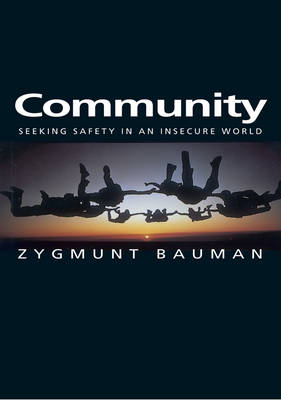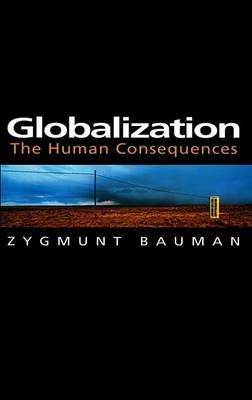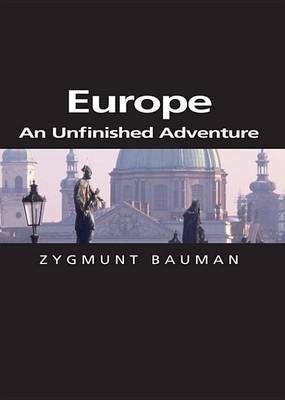Themes for the 21st Century
4 total works
'Community' conveys the image of a warm and comfortable place, like a fireplace at which we warm our hands on a frosty day. Out there, in the street, all sorts of dangers lie in ambush; in here, in the community, we can relax and feel safe. 'Community' stands for the kind of world which we long to inhabit but which is not, regrettably, available to us. Today 'community' is another name for paradise lost - but for a paradise which we still hope to find, as we feverishly search for the roads that may lead us there.
But there is a price to be paid for the privilege of being in a community. Community promises security but seems to deprive us of freedom, of the right to be ourselves. Security and freedom are two equally precious and coveted values which could be balanced to some degree, but hardly ever fully reconciled. The tension between security and freedom, and between community and individuality, is unlikely ever to be resolved. We cannot escape the dilemma but we can take stock of the opportunities and the dangers, and at least try to avoid repeating past errors.
In this important new book, Zygmunt Bauman takes stock of these opportunities and dangers and, in his distinctive and brilliant fashion, offers a much-needed reappraisal of a concept that has become central to current debates about the nature and future of our societies.
As we grapple with the insecurity and uncertainty of liquid modernity, Bauman argues that our socio-political, cultural, professional, religious and sexual identities are undergoing a process of continual transformation. Identities the world over have become more precarious than ever: we live in an era of constant change and disposability - whether it's last season's outfit, or car, or even partner - and our identities as a result have become transient and deeply elusive. In a world of rapid global change where national borders are increasingly eroded, our identities are in a state of continuous flux.
Identity - a notion that by its very nature is elusive and ambivalent - has become a key concept for understanding the changing nature of social life and personal experience in our contemporary, liquid modern age. In this brief book, Zygmunt Bauman explains compellingly why this is so.
Alongside the emerging planetary dimensions of business, finance, trade and information flow, a 'localizing', space-fixing process is set in motion. What appears as globalization for some, means localization for many others; signalling new freedom for some, globalizing processes appear as uninvited and cruel fate for many others. Freedom to move, a scarce and unequally distributed commodity, quickly becomes the main stratifying factor of our times.
Neo-tribal and fundamentalist tendencies are as legitimate offspring of globalization as the widely acclaimed 'hybridization' of top culture - the culture at the globalized top. A particular reason to worry is the progressive breakdown in communication between the increasingly global and extra- territorial elites and ever more 'localized' majority. The bulk of the population, the 'new middle class', bears the brunt of these problems, and suffers uncertainty, anxiety and fear as a result.
This book is a major contribution to the unfolding debate about globalization, and as such will be of interest to students and professionals in sociology, human geography and cultural issues.
Bauman argues that despite the odds Europe still has much to offer in dealing with the great challenges that face us in the twenty-first century. Through sharing its own hard-won historical lessons, Europe can play a vital role in moving from the Hobbesian-like world in which we find ourselves today towards the kind of peaceful unification of humanity that was once envisioned by Kant.



